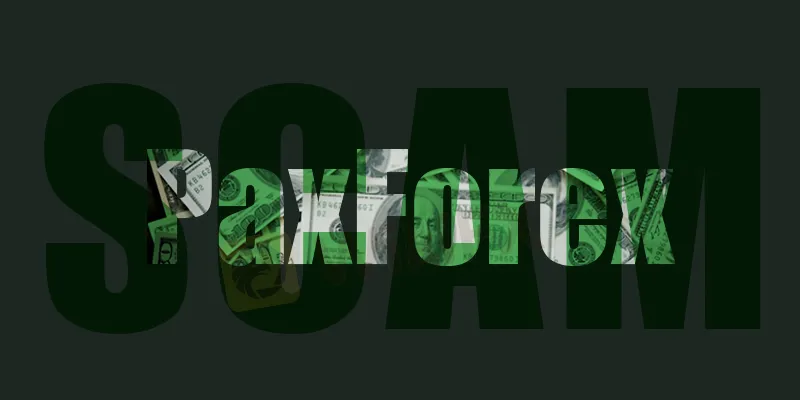简体中文
繁體中文
English
Pусский
日本語
ภาษาไทย
Tiếng Việt
Bahasa Indonesia
Español
हिन्दी
Filippiiniläinen
Français
Deutsch
Português
Türkçe
한국어
العربية
Scam Exposure: PaxForex Receives Critics for Withdrawal Issues
Abstract:People typically refer to forex trading when it comes to making quick money online. Undoubtedly, with a daily trading turnover of 6.3 trillion U.S. Dollars, the forex market offers countless opportunities for investors to generate handsome returns. However, being the world's most liquid market, it also becomes a hot spot for money stealers to come into play. On top of that, brokers like PaxForex can turn your trading journey into a horrible experience. Let us unleash why we believe PaxForex is a scam.

PaxForex.com - Overview
PaxForex is an offshore forex and CFD broker founded in 2011. The company is headquartered in St. Vincent and Grenadines. While clients can trade different financial instruments across various asset classes, including forex, indices, stocks, and spot metals, the option of social trading is also available at PaxForex. The company projects itself to be the market leader providing multiple account types, advanced trading features, and rich educational resources. However, the broker doesn't share any information concerning its regulation status on its website.
Is PaxForex Regulated?
No, PaxForex is not regulated anywhere in the world. The company claims to have been registered with St. Vincent and Grenadines Financial Services Authority, but it doesn't appear in the search result on the SVGFSA website. Moreover, St. Vincent and the Grenadines Financial Services Authority do not grant licenses to foreign exchanges or brokerage firms. Neither SVGFSA regulates nor monitors businesses engaged in such activities.

What do clients say about PaxForex.com?
PaxForex is one of the poorly rated companies we've reviewed so far. Investors repeatedly provide negative feedback on multiple social media and digital platforms, including BrokersView.
While clients complain about its trade execution policy, the company also receives critics for withdrawal issues. Let us share some screenshots.

What makes PaxForex a Scam Broker?
First, the company displays false information on its website concerning its registration with St. Vincent and Grenadines Financial Services Authority. For instance, it says PaxForex is a trading name of Laino Group register number 21973 IBC 2014. However, we couldn't find any entity appearing with this name on the SVGFSA website.

Secondly, the firm has been blacklisted by various regulators around the globe.

Lastly, the most prevalent proof of the broker being a scam entity is the seizure of the company's official domain www.PaxForex.com by the Federal Bureau of Investigation in line with the warrant issued by the United States District Court for the Southern District of Texas.

Not to mention, the company doesn't refrain from finding ways to scam clients. It keeps changing its domain names and continues its operations shamelessly. For instance, the broker is currently accessible on www.PaxForex.org.
Bottom line
Differentiating between a legit or a scam broker can be tricky, especially for newbies. However, some apparent signs can help you instantly spot a shabby broker. For instance, scam brokers do not have regulations from well-reputed regulatory authorities like FCA, ASIC, or CySEC. Further, they prefer to register offshore to avoid any legal prosecution. If you want to know more about regulation, you can see our “Regulators”.

Disclaimer:
The views in this article only represent the author's personal views, and do not constitute investment advice on this platform. This platform does not guarantee the accuracy, completeness and timeliness of the information in the article, and will not be liable for any loss caused by the use of or reliance on the information in the article.
Read more

Top 10 Trading Indicators Every Forex Trader Should Know
Master the top 10 Forex trading indicators to analyze real-time Forex quotes, trends, and market signals. Learn strategies to boost accuracy and avoid mistakes.

Geopolitical Events: What They Are & Their Impact?
You've heard many times that geopolitical events have a significant impact on the Forex market. But do you know what geopolitical events are and how they affect the FX market? Let us learn about it today.

Why Do You Feel Scared During Trade Execution?
Trade execution is a pivotal moment for traders. It is when analysis turns into action, and potential profits or losses become reality. However, for many traders, this moment is accompanied by fear. Why does this happen, and how can you address it?

WikiEXPO Global Expert Interview: Simone Martin—— Exploring Financial Regulation Change
In the midst of financial innovation and regulation, WikiGlobal, the organizer of WikiEXPO, stays abreast of industry trends and conducts a series of insightful and distinctive interviews on pivotal topics. We are delighted to have the privilege of inviting Simone Martin for an in-depth conversation this time.
WikiFX Broker
Latest News
Volkswagen agrees deal to avoid Germany plant closures
Geopolitical Events: What They Are & Their Impact?
Top 10 Trading Indicators Every Forex Trader Should Know
WikiEXPO Global Expert Interview: Simone Martin—— Exploring Financial Regulation Change
TradingView Launches Liquidity Analysis Tool DEX Screener
MultiBank Group Wins Big at Traders Fair Hong Kong 2024
'Young investors make investment decisions impulsively to keep up with current trends' FCA Reveals
Why Do You Feel Scared During Trade Execution?
CySEC Settles Compliance Case with Fxview Operator Charlgate Ltd
Malaysian Influencer Detained in Taiwan Over Alleged Role in Fraud Scheme
Currency Calculator


